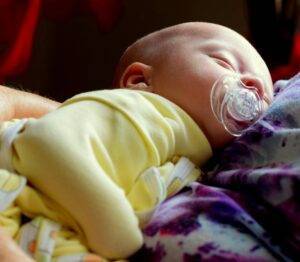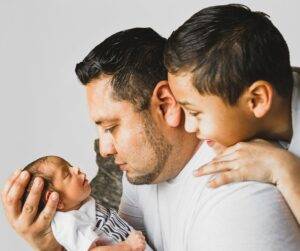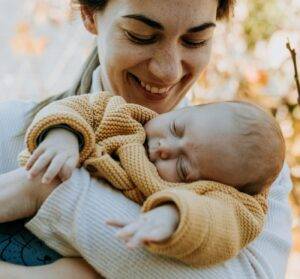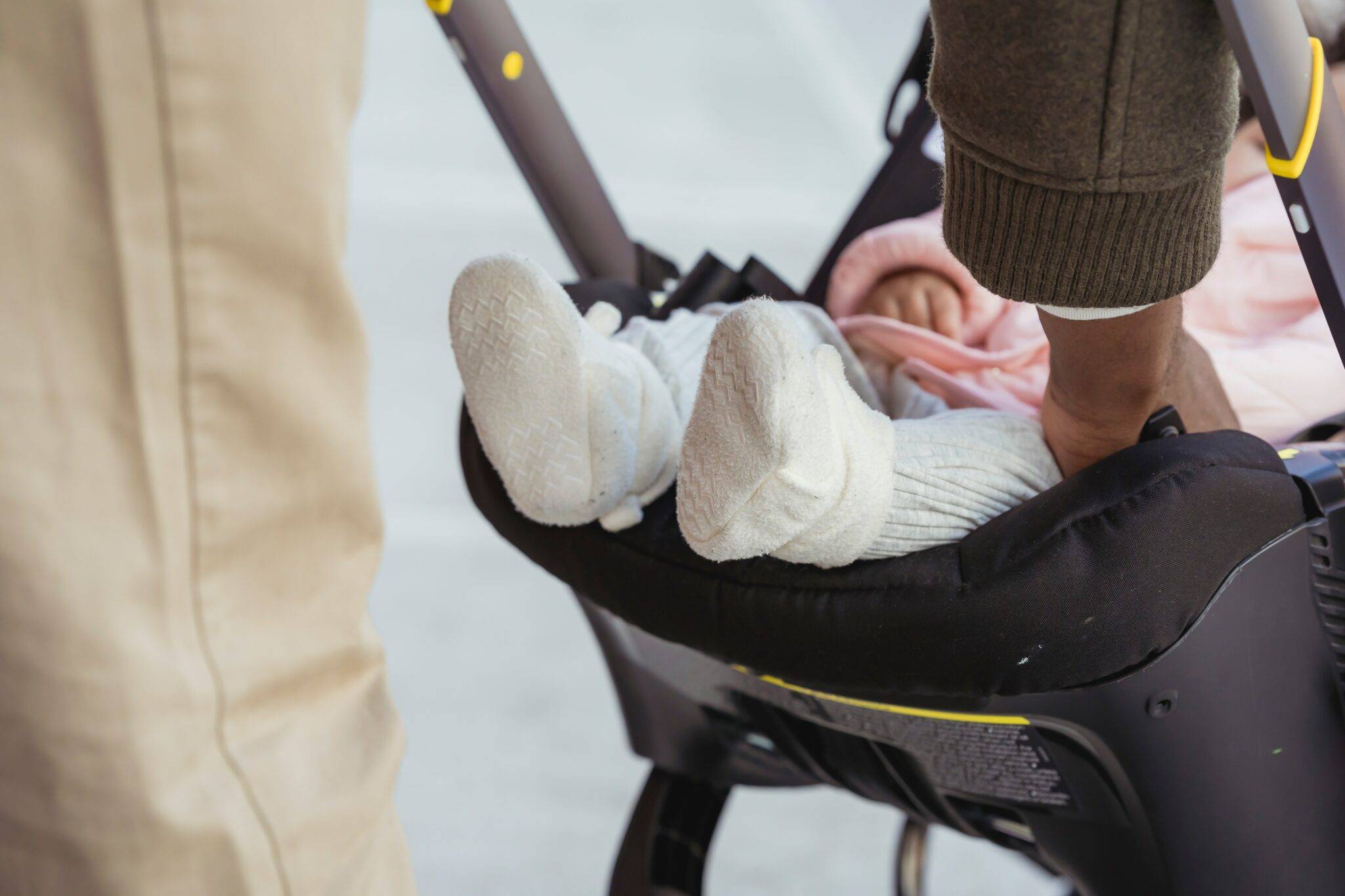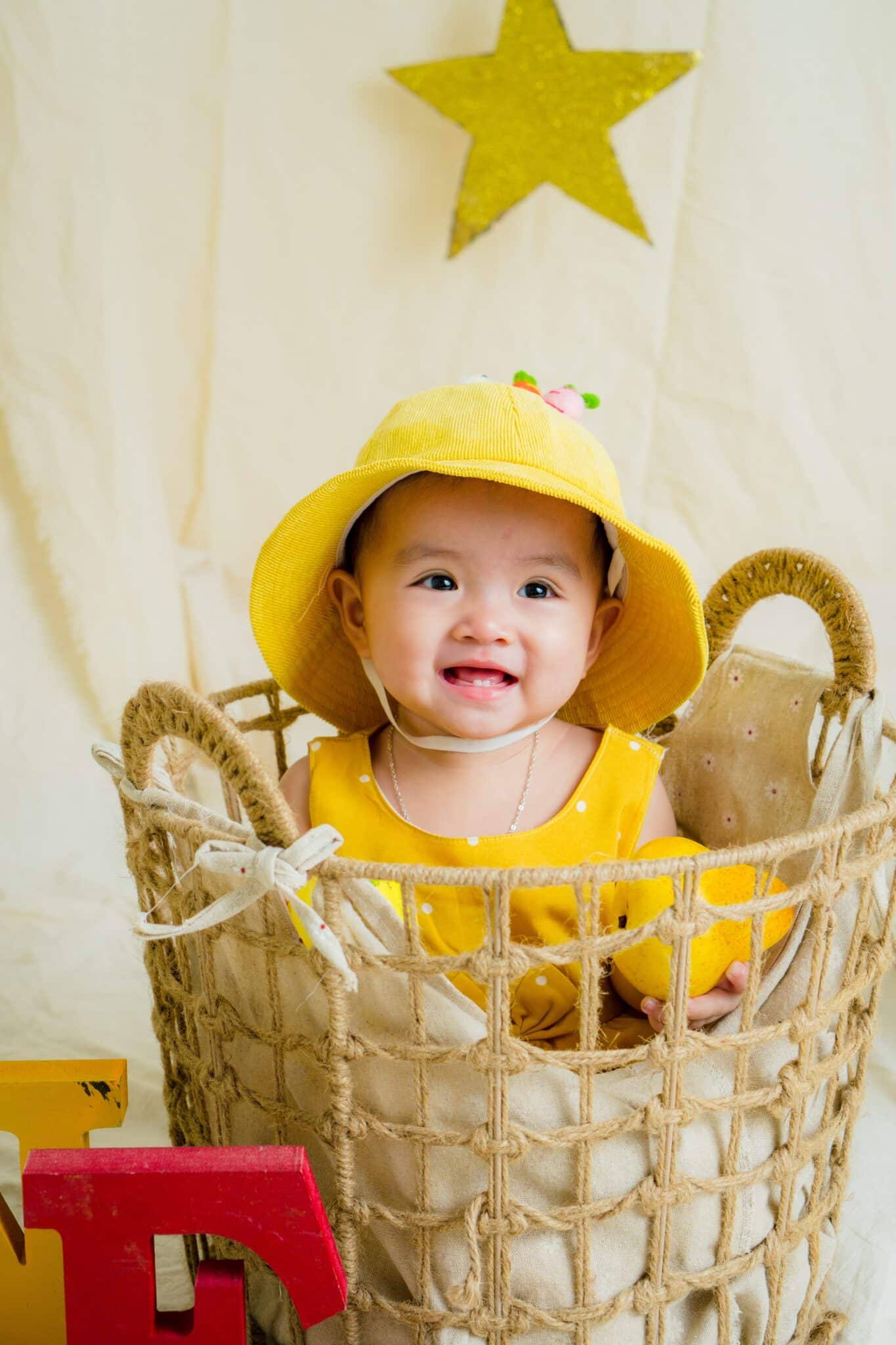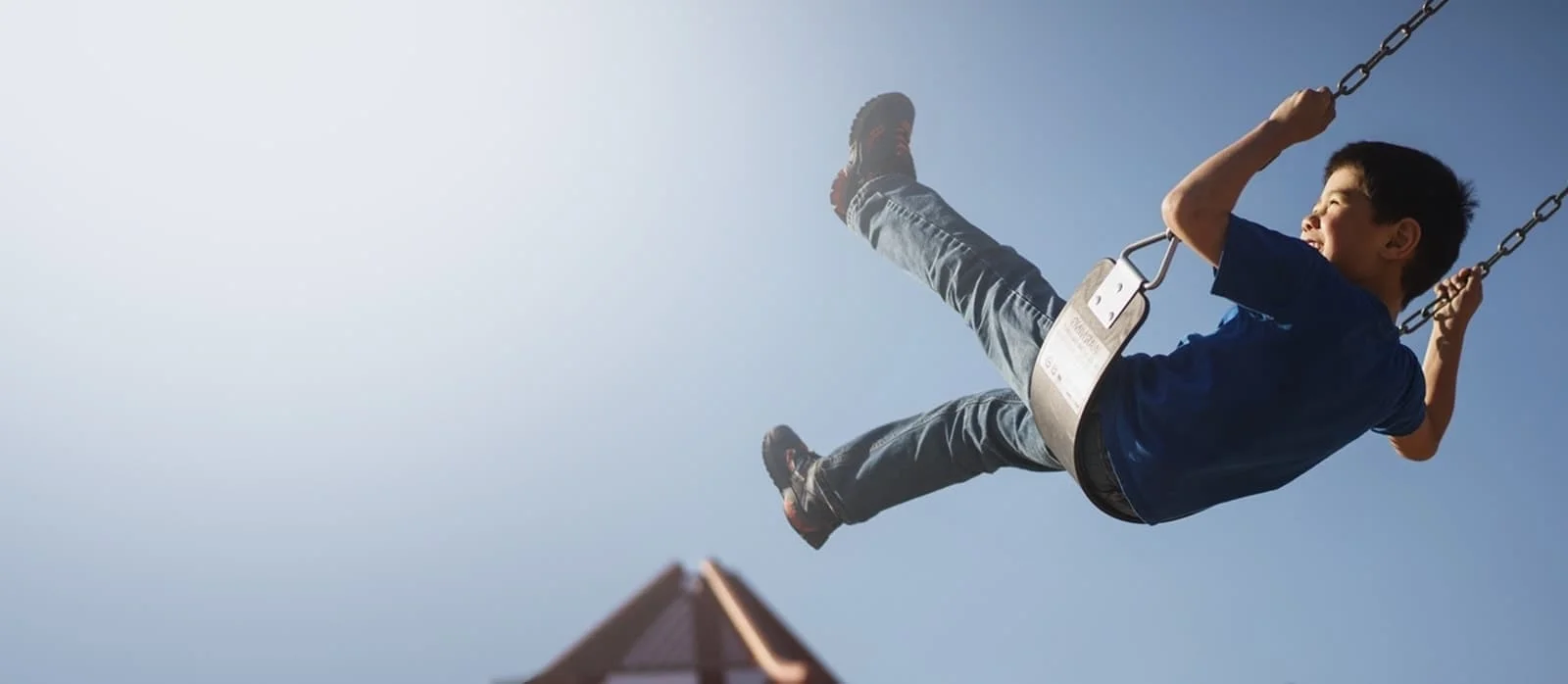Welcoming a newborn into the world is a magical experience filled with joy and excitement. However, for many parents, the moment they first lay eyes on their baby can come with a few surprises, such as noticing their newborn baby without hair. If you’re one of these parents, don’t worry. A bald baby is completely normal and often temporary.
Let’s dive into everything you need to know about your newborn baby without hair.
1. Why is My Newborn Baby Without Hair?
Newborn hair loss, also known as neonatal alopecia, is quite common. Babies can be born with a full head of hair, a few wisps, or no hair at all. Several factors contribute to why your newborn baby without hair or lose their initial hair:
- Hormonal Changes: During pregnancy, high levels of hormones circulate through the baby’s body. After birth, these hormone levels drop, leading to hair shedding.
- Sleeping Position: Babies spend a lot of time lying on their backs, which causes friction and leads to hair loss on the back of their heads.
- Genetics: Just like eye color and height, the amount of hair your baby has at birth is influenced by genetics.
2. Is It Normal for Babies to Lose Hair?
Yes, it’s normal for babies to lose their hair. This hair loss usually occurs within the first six months of life. The initial hair, known as vellus hair, is thin and soft. It will eventually be replaced by terminal hair, which is thicker and more pigmented.
The Role of Pregnancy Hormones in Newborn Hair Loss
During pregnancy, your baby is exposed to high levels of hormones from the mother. These hormones stimulate hair growth in utero, which is why some babies are born with a head full of hair. However, once the baby is born and these hormone levels drop, the hair may enter a resting phase and fall out.
This process is perfectly normal and part of your baby’s development.
3. When Will My Newborn’s Hair Grow In?
Factors Influencing Hair Growth
- Genetics: If you or your partner had early or late hair growth as babies, it’s likely your baby will follow a similar pattern.
- Nutrition: A well-balanced diet is crucial for hair growth. Breast milk or formula provides the necessary nutrients for your baby’s overall health, including their hair.
- Health Conditions: Certain health conditions, such as eczema or cradle cap, affect hair growth. Consult your pediatrician for concerns about your baby’s hair loss.
The Role of Genetics in Newborn Hair
- Inherited Traits: Your baby’s hair, or lack thereof, can be traced to family genetics. If you or your partner were bald as babies, there’s a good chance your baby might be too. Hair growth patterns are inherited, and what you see now isn’t necessarily indicative of your baby’s future hair growth.
- Hair Color and Texture Changes: Hair color and texture change as your baby grows. A baby born with dark hair ends up with blond hair as a toddler. Similarly, hair that starts straight becomes curly over time. These changes are all part of your baby’s unique development.
The Role of Nutrition in Hair Health
Good nutrition is vital for your baby’s overall health, including their hair. Breast milk or formula provides the essential nutrients your baby needs during the first months of life. As your baby starts to eat solid foods, continue to ensure they receive a balanced diet rich in vitamins and minerals. Here are the key nutrients for hair growth:
- Protein: Essential for cell growth and repair, including hair cells.
- Iron: Helps carry oxygen to the hair follicles.
- Zinc: Plays a role in hair tissue growth and repair.
- Vitamins A and C: Support the production of sebum, which keeps hair moisturized.
4. Timeline for Hair Growth
Hair growth is highly variable among infants. Every baby is unique, and so is their hair growth timeline. Some babies start growing new hair within a few weeks, while others may take several months. You expect some hair growth when your baby is around six months old. By their first birthday, most babies will have a more noticeable head of hair.
This variability is normal and often reflects the genetic diversity and individual growth patterns of each child.
Understanding Hair Growth Stages
- Anagen Phase (Growth Phase): This is the active growth phase of hair follicles. Hair cells divide rapidly, adding length to the hair. This phase lasts several years, depending on genetics and overall health.
- Catagen Phase (Transition Phase): This is a short transition period where hair growth slows down, and the hair follicle shrinks. This phase lasts about two to three weeks.
- Telogen Phase (Resting Phase): This is the resting phase where hair growth stops, and the hair eventually falls out to make way for new hair. This phase lasts about three months.
5. Tips for Promoting Healthy Hair Growth
- Gentle Brushing: Using a soft baby brush, gently brush your baby’s scalp to stimulate blood circulation and remove any loose hair or scales. Avoid brushing too hard, as this damages the delicate scalp.
- Scalp Massage: Gently massaging your baby’s scalp promotes blood flow and stimulates hair growth. Use your fingertips to massage the scalp in small, circular motions.
- Avoid Over-Washing: While it’s important to keep your baby’s scalp clean, over-washing strips the scalp of natural oils, leading to dryness and irritation. Aim to wash your baby’s scalp two to three times a week.
Understanding Hair Texture and Type
- Straight Hair: Babies with straight hair have hair that lies flat against the scalp. This type of hair is fine or thick, and its appearance changes as the baby grows.
- Curly Hair: Curly hair in babies range from loose waves to tight curls. Curly hair tends to be more prone to dryness and requires moisturizing to keep it healthy.
- Coily Hair: This is characterized by tight, spring-like curls. This hair type is more fragile and requires gentle handling and regular moisturizing to prevent breakage.
Environmental Factors Affecting Hair Growth
- Temperature and Climate: The environment plays a role in your newborn’s hair growth. For instance, living in a colder climate means your baby wears hats more often, which leads to friction and hair loss. Conversely, in warmer climates, less frequent hat-wearing results in less hair friction.
- Air Quality and Health: Pollutants and poor air quality affect your baby’s skin and hair. Keeping your home environment clean and good air quality promotes healthier skin and hair growth for your baby.
6. How to Care for a Newborn Baby Without Hair
Tips for Gentle Scalp Care
Even if your newborn baby doesn’t have hair, it’s important to take good care of their scalp. Here are some tips:
- Gentle Washing Routine: During bathtime, use mild, tear-free baby shampoo. Avoid adult shampoos or products with harsh chemicals. Wash gently, avoiding vigorous scrubbing, which irritates the skin.
- Moisturize: Keep your baby’s scalp moisturized, especially if it’s dry or prone to flaking. Apply fragrance-free baby lotion or natural oils like coconut oil to keep it hydrated and prevent dryness.
- Avoid Tight Headgear: While it’s important to keep your baby warm, especially in cooler climates, avoid tight hats or headbands that cause friction and lead to further hair loss. Opt for loose-fitting, breathable hats made from soft materials.
Preventing Cradle Cap
Cradle cap is a common condition among newborns, causing scaly, crusty patches on the scalp. While it’s not harmful, it can be unsightly. Here are some steps to prevent and treat:
- Regular Washing: Wash your baby’s scalp regularly with a gentle shampoo.
- Soft Brush: Use a soft baby brush to gently remove any loose scales.
- Oil Treatment: Apply a small amount of baby oil or coconut oil to the scalp to loosen the scales before washing.
Addressing Scalp Health
Maintaining a healthy scalp is important for your baby’s comfort and future hair growth. Ensure that the scalp is kept clean and free from irritants. If you notice any redness, swelling, or persistent dryness, consult your pediatrician for advice and potential treatment options.
7. Adapting to Hair Changes as Your Baby Grows
- Transitioning to Solid Foods: As your baby transitions to solid foods, ensure they receive a balanced diet rich in vitamins and minerals that support healthy hair growth. Introduce a variety of fruits, vegetables, proteins, and whole grains.
- Regular Pediatric Check-Ups: This helps monitor your baby’s overall health, including hair growth. Discuss any concerns about hair loss or growth patterns
- Celebrating Milestones: Every milestone in your baby’s life is worth celebrating, including their hair growth journey. Take photos, keep a journal, and enjoy watching your baby grow and change.
8. Embracing Your Newborn Baby Without Hair
- Celebrate Your Baby’s Uniqueness: Every baby is unique, and whether your baby has a full head of hair or none at all, they’re perfect just the way they are. Embrace their uniqueness and cherish these early moments. Hair will grow in time, and your baby’s health and happiness are what truly matter.
- Focus on Health and Happiness: While hair growth is an important aspect of development, your baby’s overall health and happiness are what truly matter. Focus on providing a loving, nurturing environment where your baby can thrive.
- Build a Strong Bond: Use this time to bond with your baby through touch, talk, and play. These early interactions are crucial for their emotional and physical development.
- Manage Expectations: It’s natural for parents to have concerns about their baby’s hair growth. Every baby is different, and hair growth patterns vary widely. Patience is key, and most babies will start to grow more hair as they approach their first birthday.
- Capture Memories: Take photos and enjoy this special time with your little one. Hair or no hair, these precious moments will be cherished. Celebrate milestones and create lasting memories with your newborn.
9. When to Consult a Pediatrician
While a newborn baby without hair is usually not a cause for concern, some cases call for a visit to the pediatrician:
- Excessive Hair Loss: If your baby is losing a significant amount of hair or has bald patches, it’s worth discussing with your doctor.
- Skin Changes: Red, swollen, or scaly skin on the scalp could indicate a skin condition that needs medical attention.
- No Hair Growth: If your baby shows no signs of hair growth by their first birthday, consult your pediatrician to rule out any underlying conditions.
Common Conditions Affecting Hair Growth in Newborns
- Alopecia Areata: An autoimmune condition that causes hair loss in patches.
- Hypothyroidism: An underactive thyroid gland affects hair growth.
- Nutritional Deficiencies: Lack of certain nutrients, such as iron or zinc, impact hair growth.
Don’t hesitate to consult your pediatrician. They will diagnose if there’s an underlying condition that needs to be addressed or if your baby’s hair growth is within the normal range.
10. What are the Common Myths About Newborn Hair?
Myth: Shaving a Baby’s Head Promotes Thicker Hair Growth
A common myth is that shaving a baby’s head will make their hair grow back thicker. This is not true. Hair growth and thickness are determined by genetics and health, not by shaving.
Myth: All Babies with Hair Will Keep It
Just because a baby is born with hair doesn’t mean they will keep it. Many babies lose their initial hair within the first few months of life due to hormonal changes and other factors.
Enjoy Every Moment with Your Little One, Hair or No Hair
Having a newborn baby without hair is a common experience for many parents. This is a normal part of infancy and usually nothing to worry about. With proper care and a little patience, your baby’s hair will grow in its own time. Focus on your baby’s overall health and well-being, and enjoy the journey of parenthood.
For more information on caring for your newborn, check out Omegapediatrics’ guide on newborn care and their tips on dealing with common newborn issues.

